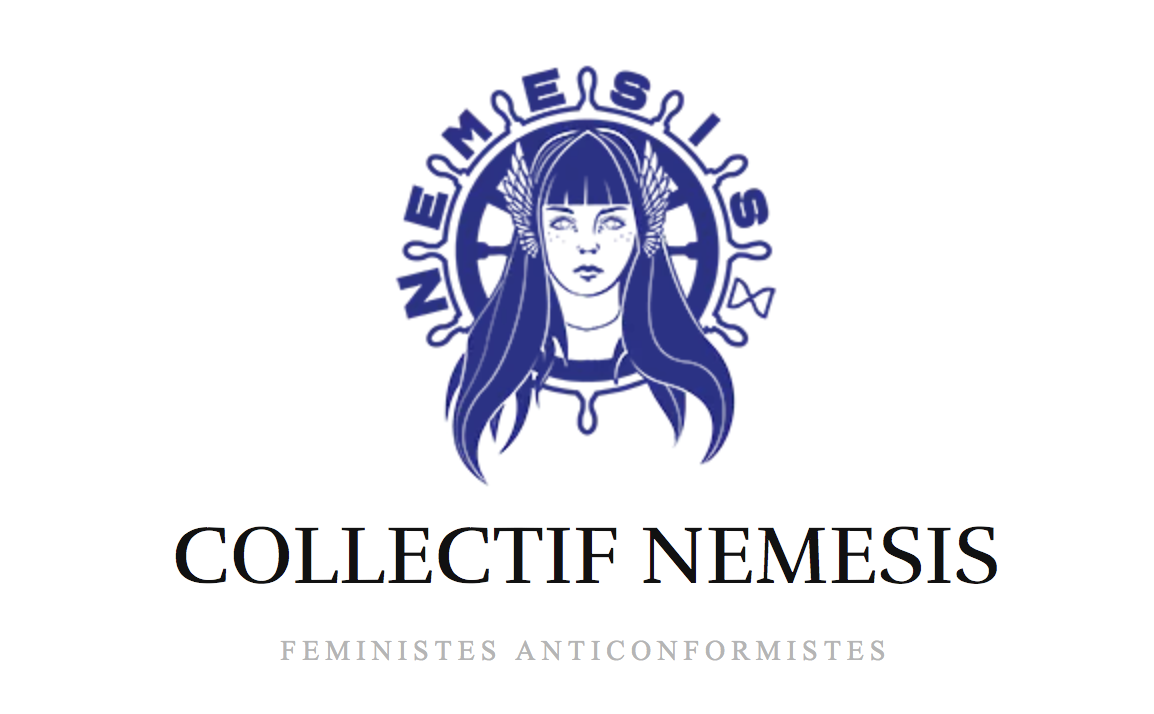By Evi Tsakali,
Once upon a time, there was a girl named Alice. Alice Cordier was born in Rennes, and she believed in the ideals of the political right so much that she decided to create one… After graduating from the Institut de Formation Politique (the right-wing postgraduate school I presented in a previous article), she founded Nemesis, a sort of right-wing collective basically concerned about issues related to feminism. You may now wonder, how is it possible for a collective to be feminist and belong to the extreme right at the same time? I do too; but with a closer look at the organization’s name, we may get our first answers.
In Ancient Greek mythology, Nemesis incarnates divine vengeance against men. Likewise, in 21st century France, Nemesis identifies as an “anticonformist feminist association that vouches to avenge men… but not all of them”; and this is the key to Cordier’s perception of feminism, extreme-right style. In an interview with a local news outlet in Rennes, Alice Cordier clearly designated her target; “We already have many pigs of our own, we will not take the risk of taking in men from countries where women are secondary beings and where Sharia law persists”; migrants it is, as it seems. In this short statement, one can detect no willingness to protect women, but plenty of hate for immigrant men. Nemesis is, thus, a xenophobic, racist collective covered in the silver lining of a feministic approach; how diabolically clever, how unapologetically unethical, and missing the point.

There is one incident that boosted the narrative of those ultra-right so-called feminists, and which we could say constitutes the birth certificate of the organization: the 2016 New Year’s celebrations in Cologne, Germany, which also made Greek news headlines back then; that night, more than 1000 women were assaulted in the streets of the German city of Cologne, amidst the celebrations for the New Year. The ones to blame? “Illegal immigrants” suspected the local police department. Alice Cordier thought so as well, and this incident became what would impregnate her plan to take advantage of feminist argumentation by applying it in order to disguise her racist agenda.
This feminism in disguise cannot be masked for a long time though. Even a handful of Cordier’s statements are solid proof of how Nemesis was never about feminist demands. “Abortion, the patriarchy, those do not concern everybody; on the other hand, we all know about assaults in the streets”, thinks the founder of Nemesis, who is essentially pleading for a sort of feminism a la carte that does not support many crucial combats of the female movement.

The far-right, xenophobic identity of this collective was also illustrated via their political affiliations on the occasion of the French Presidential Elections that took place last spring. Even though the collective announced no official affiliation, as someone with an elementary scope of French politics would expect, the majority of Nemesis’ members constituted the entourage of the two basic representatives of the ultra-right, Marine Le Pen and Eric Zemmour. Alice Cordier has been seen speaking about “patriot women” at a conference organized by Le Pen’s party in Marseille, while another woman who has been linked to Nemesis founded the group “Femmes avec Zemmour” (“Women with Zemmour”).
Moral of the story: can feminism and the extreme right co-exist? No, but feminism can be a very pretty mask sometimes…
References
-
Alice Cordier, la rennaise à la tête du « féminisme identitaire », letelegramme.fr, Available here
-
Nemesis’s official website, collectif-nemesis.com, Available here




